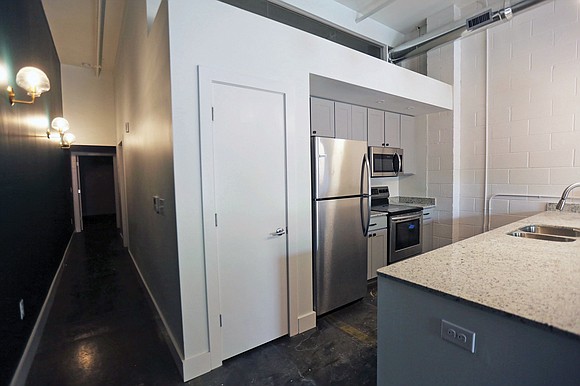Officials confirm new regional discussions to address homelessness using federal money
Jeremy M. Lazarus | 6/10/2021, 6 p.m.
Richmond and its two biggest neighbors, Chesterfield and Henrico counties, have begun talks on a regional approach to the needs of the hundreds of people who are homeless in the area, including the potential for creating a year-round emergency shelter with support services.
In a joint statement responding to a Free Press query, the three localities have confirmed that they have begun “working together to examine possible solutions.”
The discussions indicate the Richmond area is considering following the model of shelter and services that four Hampton Roads cities created and that also is in operation in Northern Virginia.
The statement, issued through Ben Sheppard, Henrico’s public relations director, notes that the three localities anticipate receiving an $11 million infusion “in new one-time targeted federal funding that could potentially support this effort and have assembled a work group of city and county staff members to consider next steps.”
While at least 11 area nonprofits, ranging from CARITAS to the YWCA, already operate year-round shelters, a regional government-backed project that homeless support groups have advocated for would represent a dramatic expansion if the talks bear fruit.
According to the Richmond area’s count of the homeless, between 500 and 700 men, women and children are unsheltered. Richmond City Council already has voted to back creation of a year-round operation to meet the needs of the city’s homeless.
But even as the regional talks get underway, City Council is preparing to consider a policy statement outlining options for uses of the city’s share of the new federal funding, which is expected to be about $8.5 million.
For years, City Hall focused most heavily on ensuring last-resort emergency shelter services are available during winter when cold temperatures can kill and provided grants to nonprofits to handle the majority of services. Henrico and Chesterfield largely stayed away from offering shelter services, preferring to use funding from federal block grants to support charities.
The $11 million would come through the housing component of the American Rescue Plan and would be distributed through the U.S. Department of Housing and Urban Development’s HOME Investment Partnership Program. This money would be on top of the direct and far larger ARP payments each locality is set to receive.
The joint statement notes that regional discussions “are in the very early stages” and that potential nonprofit partners and sites for a facility have not been identified. The statement indicated that more information would be forthcoming if or when an action plan begins to take shape.
Meanwhile, 5th District City Councilwoman Stephanie A. Lynch, chair of council’s Education and Human Services Committee and the council’s leading advocate for a year-round shelter, is proposing a council resolution laying out various ways the infusion of dollars could be spent.
Her three-member committee is to consider her resolution on Thursday, June 10, with Ms. Lynch hoping to advance it to the full council for approval possibly at the council’s Monday, June 14, meeting or later.
Among other things, her resolution calls for using the money to develop “a high-quality, year-round emergency housing shelter” that links nonprofits, state and regional agencies and local departments to provide services.
Other options Ms. Lynch has laid out include providing grants to help accelerate the plans of nonprofits to expand their shelters, including the Salvation Army, which is raising money to develop new offices and a larger shelter in a former North Side church.
In addition, Ms. Lynch’s resolution calls for using some of the money to create a local version of the Section 8 housing voucher program. She said the idea would be to provide portable rental subsidies to aid people to secure and stay in homes at a rent they can afford.
Kelly King Horne, executive director of Homeward, a regional nonprofit that coordinates homeless services, hopes the three local governments remain mindful of the planning in which so many providers are engaged year-round “to meet the needs of the homeless” and of the existing investment in year-round shelter services.
Those year-round shelter resources include CARITAS, Home Again, Housing Families First, the Good Samaritan Inn and the Salvation Army. It also includes specialty providers for households flee- ing sexual or domestic violence, such as Hanover Safe Place, Safe Harbor and the YWCA.
Other providers include the Daily Planet, which provide housing to homeless people who are medically fragile or recovering from surgery, and Liberation Veteran Services’ and the Veterans Administration’s services for those who served in the military.
She said the three localities are currently members of the Greater Richmond Continuum of Care that serves as a planning umbrella for homeless services. Homeward and GRCOC partner agencies were on the front lines in providing emergency winter shelter for the homeless during the pandemic.
“GRCOC engages in year-round planning in order to address the needs of the homeless,” Ms. Horne said, noting that this approach has led to the creation of hotlines to link people on the streets to various services, including shelter and food.







